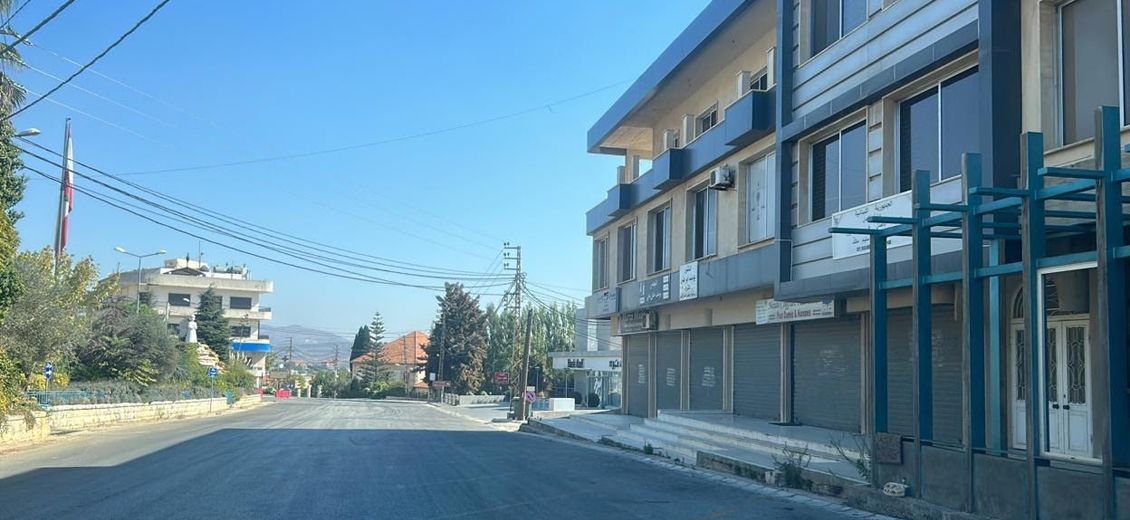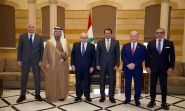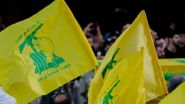
Despite feelings of abandonment, fear, and concern, the residents of three southern Lebanon border villages — Qlayaa, Rmeish, and Marjayoun — are determined not to leave. They cling to the hope that the war raging around them will not reach their communities, where Hezbollah has no active presence.
The exodus of residents from southern Lebanon to safer areas has intensified since the Israeli Army began instructing them to "leave their homes and move north of the Litani due to imminent strikes on Hezbollah targets." However, some villages, particularly Christian ones, stand out. Many residents of Qlayaa, Rmeish, and Marjayoun are determined to stay.
Qlayaa, Rmeish, and Marjayoun Inhabitants: Die with Dignity Rather than Live in the Street pic.twitter.com/yNCxN3O4yI
— This is Beirut (@ThisIsBeirut_)Qlayaa, Rmeish, and Marjayoun Inhabitants: Die with Dignity Rather than Live in the Street pic.twitter.com/yNCxN3O4yI
— This is Beirut (@ThisIsBeirut_) October 6, 2024
"Staying here in Qlayaa reflects our commitment to the values of peace and dignity. Leaving our land and our village would mean abandoning everything we hold dear," firmly states Father Pierre al-Rai. The residents of these three villages, located just a few kilometers from the Blue Line, were unpleasantly surprised to find on October 4 that their villages were listed among 27 localities in southern Lebanon that were to be evacuated immediately at the order of the Israeli Army. The evening before, Tel Aviv had announced the start of "limited, localized, and targeted" ground operations, supported by air and artillery strikes, against Hezbollah targets in southern Lebanon.
For a year, while Hezbollah and Israel exchanged relentless artillery fire, these three villages largely remained untouched by the crossfire. Hezbollah has no presence in Rmeish and Qlayaa, and an extremely minimal presence in Marjayoun.
"We have nothing to do with the ongoing fighting. We have no political party here, no Hezbollah, nothing," emphasizes Father al-Rai.
In his Sunday sermons at St. George's Church, he strives to reassure those who have stayed behind, even as explosions rumble in the distance. "In these times of uncertainty and tension, we face threats and challenges, but we remain one family. Despite the fears and doubts that surround us, we must remember why we are here. Our land is a testament to the struggles of our ancestors, the foundation of our dreams, and the refuge of our hearts," he asserts.
The village quickly organized to navigate this crisis, as many fear it may persist. Young people help the elderly, ensuring all their needs are met; families share food and essential supplies, thanks to the women; and the men protect the village.
In their own way, the residents of Qlayaa, Rmeish, and those who have chosen to stay a bit further away in Marjayoun are standing firm. It is this spirit that gives them the strength they need. "We have heard so many bombs over the past year that even a child can make the difference between sounds," sighs a 78-year-old retiree in Qlayaa.
As he speaks, a dull explosion echoes. He raises his finger to the sky: "That's what I’m talking about," he said, as he named the missile that has just fallen somewhere in the distance. A louder blast follows, and a column of smoke rises above a mountain. He gives a faint smile: "It’s like this all the time now."
"We feel isolated, abandoned. No one thinks about us. We literally live under the missiles." Despite the tension, Chadia, a grocery store owner in Qlayaa, speaks softly. The nights, in particular, are especially challenging. For hours on end, the bombings shake the village in the darkness of the night. "Courage fades quickly when the missiles fall," she confides. The days are not easier, either. The fear of what the future holds is ever-present. "Those who chose to stay either cannot afford to leave their homes or do not want to, fearing they might lose their land," Chadia explains.
A Vulnerable Local Population
In Marjayoun, the streets are almost empty. Many residents have decided to leave, fearing an escalation of the conflict. "The feeling of isolation is growing," comments Paul, angry over the closure of the road connecting Marjayoun to Hasbaya, which was bombed by the Israeli Army at Kawkaba. "People just want access to hospitals, pharmacies, and a way to support themselves," he says.
However, some families opted not to go north of the Litani River and instead settled in nearby areas that have been spared from the bombings due to the absence of Hezbollah. One such area is Hasbaya, the capital of the caza of the same name, which hosts a large number of displaced people from the region.
This proximity allows the residents of Marjayoun who have settled there to make quick visits to their village to check on their homes and ensure that their neighbors who have decided to stay are not short of essentials. They often go in the morning when the situation is relatively calm. They make sure to bring them food. "It's always helpful," confides the father of a family living in Hasbaya.
In this Christian locality, nearly 2,000 residents chose to stay. "We prefer to die here with dignity rather than try to survive on the streets," states Dany. Bassam, a restaurant owner in Marjayoun, echoes his sentiment: "Leaving would be heartbreaking. And where would we go? Are we supposed to take refuge under the stairs in some corner of Beirut? This is our home." "This land is my life. My ancestors cultivated olives and figs here and toiled in the fields their entire lives. I know that staying is dangerous, but I prefer to live here, close to my family and friends," insists Charbel.
The Threats of Health, Economic, and Food Crises
One of the major challenges facing the residents of the Marjayoun region is related to health, due to the closure of pharmacies and the only governmental hospital in the caza. This medical facility, once vital for the community, has been forced to shut its doors because of security issues and, more importantly, limited resources and a lack of materials and equipment.
The hospital’s shutdown has severely impacted access to healthcare, as residents had hoped that the authorities, aware of the seriousness of the situation, would provide support to ensure it could continue offering at least basic medical services.
“I’m not exaggerating when I say we’re lacking everything. We had to evacuate pregnant women, dialysis patients, and cancer patients because we lack the necessary equipment and supplies for their treatments,” states Dr. Ahmad Atwi, a physician at the Marjayoun hospital.
Out of the four pharmacies in this border village, three have shut down. The only one still operating is run by Khaled, who has no intention of leaving. “Our needs are countless and the state is completely absent,” he laments.
At his pharmacy, some medications, especially those for chronic illnesses, are also beginning to run low. Until recently, two pharmacies were doing their utmost to meet the needs of the residents from their existing stock. However, due to the escalating Israeli evacuation orders, Georgina, the pharmacist, became concerned for her family’s safety and opted for leaving to protect her three daughters.
Moreover, the shutdown of the hospital and pharmacies, along with the disruption of the road connecting Hasbaya to Marjayoun — bombed three times by the Israeli Army — has intensified the feelings of concern and disarray among a population that has been left to fend for itself for a year.
The lack of fuel exacerbates the challenges faced by residents. The shortage of diesel and gasoline restricts movement and heightens the sense of isolation, particularly since internet access has been severely affected by the bombings. The telecommunications infrastructure has sustained significant damage, resulting in unstable and sometimes nonexistent internet connectivity.
However, the most pressing concern is the emerging threat of food insecurity, which is becoming evident due to movement restrictions that complicate supply chains.
Recently, three trucks carrying aid, including essential goods, set off for Rmeish. This assistance follows repeated appeals from residents to the authorities. The Ministry of Social Affairs coordinated efforts with a coalition of local and international organizations, the Lebanese Army, and UNIFIL. “Every gesture of help, no matter how small, makes us feel that we are not alone,” notes Victoria.
The village priest reassured the residents that they were safe, encouraging them to stay, just as he has, a villager called Amer said, adding, “We are peaceful people who wish to stay neutral.”
In the coming days, Qlayaa and Marjayoun are set to receive similar assistance, providing the residents with a sense of support and reminding them that they are not alone.



Comments